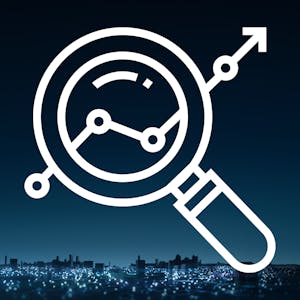Population Health: Responsible Data Analysis
About this Course
In most areas of health, data is being used to make important decisions. As a health population manager, you will have the opportunity to use data to answer interesting questions. In this course, we will discuss data analysis from a responsible perspective, which will help you to extract useful information from data and enlarge your knowledge about specific aspects of interest of the population. First, you will learn how to obtain, safely gather, clean and explore data. Then, we will discuss that because data are usually obtained from a sample of a limited number of individuals, statistical methods are needed to make claims about the whole population of interest. You will discover how statistical inference, hypothesis testing and regression techniques will help you to make the connection between samples and populations. A final important aspect is interpreting and reporting. How can we transform information into knowledge? How can we separate trustworthy information from noise? In the last part of the course, we will cover the critical assessment of the results, and we will discuss challenges and dangers of data analysis in the era of big data and massive amounts of information. In this course, we will emphasize the concepts and we will also teach you how to effectively perform your analysis using R. You do not need to install R on your computer to follow the course, you will be able to access R and all the example data sets within the Coursera environment. This course will become part of the to-be-developed Leiden University master program Population Health Management. If you wish to find out more about this program see the last reading of this Course!Created by: Universiteit Leiden

Related Online Courses
This training course introduces Cloud NGFW. Topics include how Cloud NGFW provides centralized firewall management, centralized firewall visibility, advanced threat protection, and firewall... more
In this course, you learn how Gemini, a generative AI-powered collaborator from Google Cloud, helps engineers manage infrastructure. You learn how to prompt Gemini to find and understand... more
Reactive programming is a set of techniques for implementing scalable, resilient and responsive systems as per the Reactive Manifesto. Such systems are based on asynchronous message-passing, and... more
This comprehensive Rust programming course welcomes learners of all levels, including beginners and those with some programming experience. No prior knowledge of Rust is required, making it... more
This is a self-paced lab that takes place in the Google Cloud console. Create a Kubernetes Engine cluster, deploy an application, and use Spinnaker to continuously deploy the application when... more








